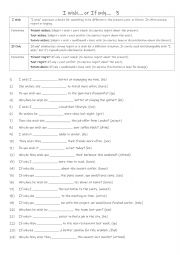
|
B1-B2 I wish�. or If only�. 3
First, students need to familiarise themselves with the 2 patterns and their use. Then they read the sentences to work out which tense is needed to complete the gap-fill using the infinitive in (). Each pattern is used 12 times! Answers on page 2
Level: intermediate
Age: 10-100
Type:
Downloads: 120
|
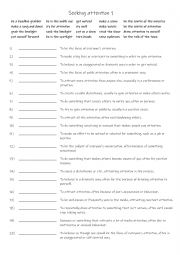
|
B1+-C1 20 seeking attention idioms 1
First, students need to familiarise themselves with the 20 idioms and expressions and their meanings. Then they read the definitions to see which one is being described and write that word in the space provided Answers on page 2.
Level: intermediate
Age: 12-100
Type:
Downloads: 120
|
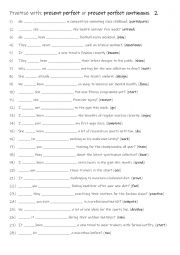
|
A2+-B1 Practise with present perfect or present perfect continuous 2
Mastering the 2 tenses enables students to discuss life experiences, actions that continue from the past, and to link past events with the present, improving fluency and communication in various contexts. First Students familiarise themselves with the 2 tenses and their use. Then they read the sentences to work out which one is needed to complete t...
Level: elementary
Age: 10-100
Type:
Downloads: 120
|
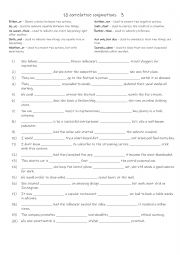
|
10 correlative conjunctions 3
First, students need to familiarise themselves with the 10 conjunctions and their meanings. Then they read the sentences to see which one is required to complete the gap-fill. Each linker is used 2 times! Answers on page 2.
Level: intermediate
Age: 9-100
Type:
Downloads: 120
|
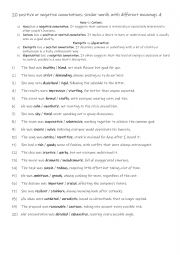
|
20 positive or negative connotations similar words with different meanings 4
First, students need to familiarise themselves with the sentences with 20 connotations and check their meaning of each word. Then they read the sentences to see which one is best to complete the sentence. Answers on page 2.
Level: intermediate
Age: 9-100
Type:
Downloads: 120
|
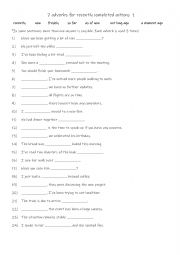
|
7 adverbs for recently completed actions 1
First, students need to familiarise themselves with the 7 adverbs. Then they read the sentences to work out which one is needed to complete the gap-fill. Each adverb is used 3 times! Answers on page 2
Level: elementary
Age: 9-100
Type:
Downloads: 120
|
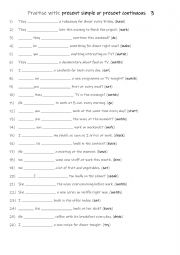
|
A1-A2 Practise with present simple or present continuous 3
Students should practice the present simple and present continuous tenses because they help distinguish between routines or facts (present simple) and ongoing or temporary actions (present continuous). Mastery of these tenses boosts confidence in daily conversations, ensures clarity in expressing different types of actions, and forms a foundation f...
Level: elementary
Age: 7-100
Type:
Downloads: 120
|
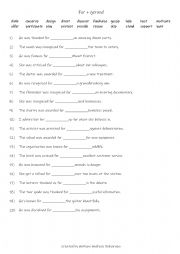
|
A2+-B1 reasons for doing something using: for + gerund (2)
First, students need to familiarise themselves with the 20 verbs and their use. Then they read the sentences to see which one is needed to complete the gap-fill. Answers on page 2.
Level: intermediate
Age: 10-100
Type:
Downloads: 120
|
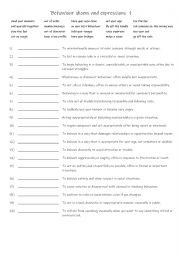
|
B1+-C1 Behaviour idioms and expressions 1
First, students need to familiarise themselves with the 20 idioms and expressions and their meanings. Then they read the definitions to see which one is being described and write that word in the space provided Answers on page 2.
Level: intermediate
Age: 12-100
Type:
Downloads: 120
|
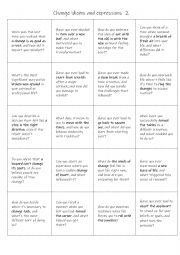
|
B1+-C1 Change idioms and expressions 2
This is a speaking reinforcement activity to supplement the other worksheet I uploaded on 24/1/2025. Students working in pairs or small groups can either ask each other the questions or answer the question themselves.
Level: intermediate
Age: 12-100
Type:
Downloads: 120
|












